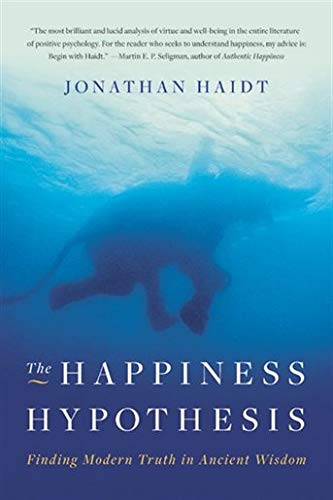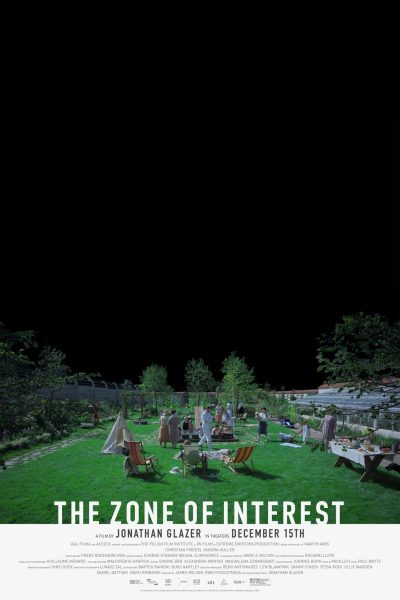The Happiness Hypothesis Book Review

Image via Amazon.com
Have you ever wondered why we exist? Or what the purpose of life is? How do we obtain and retain happiness? Where does wisdom come from? How do we maintain self-discipline?
Those sure are some heavy-hitting questions that probably procure a plethora of preposterous ponderances from a handful of passionate preachers, discipline disciples, wisdom wizards and guidance gurus.
Certainly, ancient knowledge from the abstractly perceived “olden days” can answer questions, but just as much as aphorisms and quips and mantras can answer our life-changing wonderings, the power of modern psychology may strongly suggest and observe patterns of behavior and thinking to lead us through our life, too.
How might we conjoin the old and the new camps of thought? Is such a feat possible?
Yes, such a feat is possible, and Jonathan Haidt, Professor of Ethical Leadership at NYU-Stern School of Business and author of “The Happiness Hypothesis,” sought to help our searching souls in achieving the noble task.
Haidt presents “The Happiness Hypothesis” as “Finding Modern Truth From Ancient Wisdom” and describes the book’s premise as “a book about how to construct a life of virtue, happiness, fulfillment and meaning.”
He structures his book in 10 chapters (with an introduction and conclusion) to cover 10 “Great Ideas” in a kaleidoscope of modern science and ancient wisdom from various civilizations throughout time and space.
In order, the book reads: Introduction: Too much wisdom; Ch. 1: The divided self; Ch 2: Changing your mind; Ch. 3: Reciprocity with a vengeance; Ch. 4:The faults of others; Ch. 5: The pursuit of happiness; Ch. 6: Love and attachments; Ch. 7: The uses of adversity; Ch. 8: The felicity of virtue; Ch. 9: Divinity with or without God; Ch. 10: Happiness comes from between; and Ch. 11 On Balance.
Self-help books can be hit or miss. Some books are evidence-based and pure-hearted but are drier than the material used to seal up walls.
Some books are pioneered because the author thinks that they have “good advice” but have an even better editor, publisher and marketing team to compensate.
But “The Happiness Hypothesis” is neither of those types of books.
Haidt writes not only in such a way to convey the lush wealth of psychological research with zest and zeal but also in such a way to bring into perspective the opinions of dead people long lost to the touch of time.
His pairing of research, wisdom and comprehensible writing is like pairing wine, cheese and ambient lighting; sure, each is neat on its own but, combined correctly, it’s a whole other level of bliss.
I thoroughly enjoyed “The Happiness Hypothesis.” The book provoked hearty introspection and prompted me to, in the most human way possible, start to enact minute changes in my life to crawl towards the elusive goal of happiness.
So, what are you waiting for? Go grab your favorite fermented grape liquid (if you are of age), a wheel of fancy cheese and sit under your shameless immediately-post-Thanksgiving Christmas decorations with “The Happiness Hypothesis.”
Perhaps you’ll put the book down as the newly reinvigorated rider of your elephant (that’s a reference to the first chapter) or put the book down and wonder why we don’t embrace our bee-like behaviors (and that’s a reference to the third chapter).














